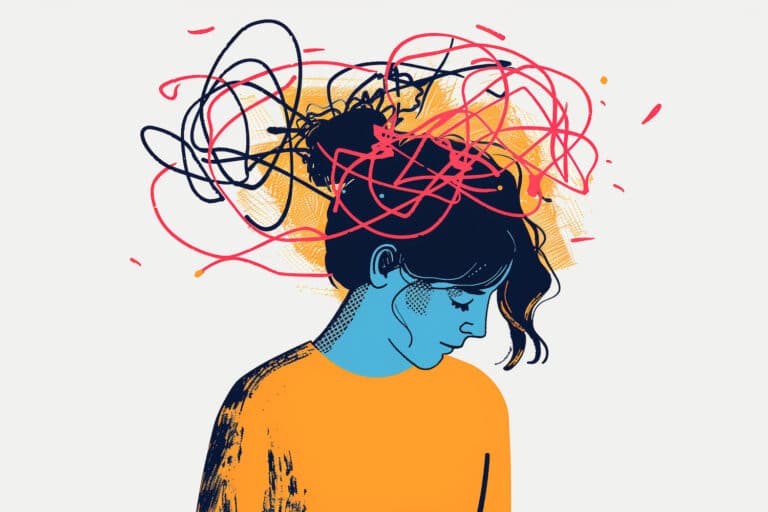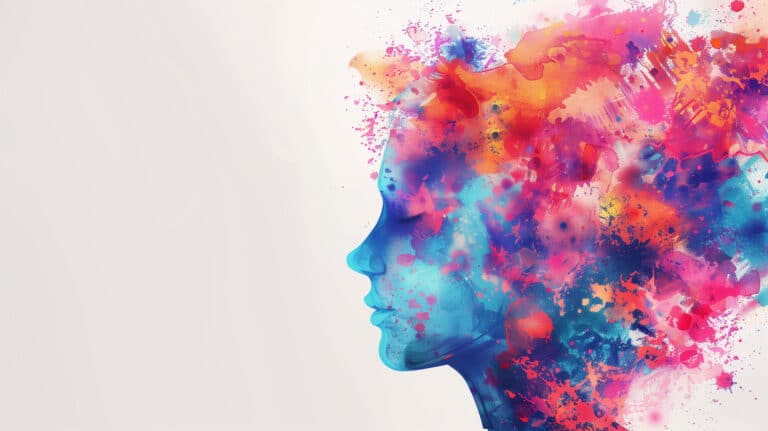By: Magnolia Creek Staff
Major Depressive Disorder feels like a consistent fog, persistent sadness, physical exhaustion, repeated self-criticizing thoughts about your lack of worth, hopelessness about the future or your ability to feel better, and is characterized by:
- Not engaging in activities that once provided joy
- Isolation
- Withdrawing from loved ones
- Lack of motivation
- Inability to concentrate
- Engagement in numbing behaviors to alleviate pain
- Excessive sleeping
- Change in eating habits
The Diagnostic Statistical Manual of Mental Disorders describes that people with Major Depressive Disorder may experience the following symptoms:
A.Five (or more) of the following symptoms have been present during the same 2-week period and represent a change from previous functioning; at least one of the symptoms is either (1) depressed mood or (2) loss of interest or pleasure.
- Depressed mood most of the day, nearly every day, as indicated by either subjective report (e.g., feels sad, empty, hopeless) or observation made by others (e.g., appears tearful). (Note: In children and adolescents, can be irritable mood.)
- Markedly diminished interest or pleasure in all, or almost all, activities most of the day, nearly every day (as indicated by either subjective account or observation.)
- Significant weight loss when not dieting or weight gain (e.g., a change of more than 5% of body weight in a month), or decrease or increase in appetite nearly every day. (Note: In children, consider failure to make expected weight gain.)
- Insomnia or hypersomnia nearly every day.
- Psychomotor agitation or retardation nearly every day (observable by others, not merely subjective feelings of restlessness or being slowed down).
- Fatigue or loss of energy nearly every day.
- Feelings of worthlessness or excessive or inappropriate guilt (which may be delusional) nearly every day (not merely self-reproach or guilt about being sick).
- Diminished ability to think or concentrate, or indecisiveness, nearly every day (either by subjective account or as observed by others).
- Recurrent thoughts of death (not just fear of dying), recurrent suicidal ideation without a specific plan, or a suicide attempt or a specific plan for committing suicide.
B.The symptoms cause clinically significant distress or impairment in social, occupational, or other important areas of functioning.
C.The episode is not attributable to the physiological effects of a substance or another medical condition.
D.The occurrence of the major depressive episode is not better explained by schizoaffective disorder, schizophrenia, schizophreniform disorder, delusional disorder, or other unspecified schizophrenia spectrum and other psychotic disorders.
Note: Responses to a significant loss (e.g., bereavement, financial ruin, losses from a natural disaster, a serious medical illness or disability) may include the feelings of intense sadness, rumination about the loss, insomnia, poor appetite, and weight loss noted in Criterion A, which may resemble a depressive episode. Although such symptoms may be understandable or considered appropriate to the loss, the presence of a major depressive episode in addition to the normal response to a significant loss should also be carefully considered. This decision inevitably requires the exercise of clinical judgment based on the individual’s history and the cultural norms for the expression of distress in the contest of loss.
If this sounds like you or someone you love, here are a few things to remember:
1. Major Depressive Disorder is never the person’s fault. There is nothing they have done personally to cause its onset. Major Depressive Disorder develops due to a neurochemical imbalance in the brain with neurotransmitters (pleasure chemicals). Brains either over or under produce chemicals needed for emotional balance. Depression can also be impacted by other biological factors like sex hormone imbalances (estrogen, progesterone, and testosterone) or thyroid imbalances. Depression can be exacerbated by traumatic experiences as well.
2. It’s not as easy as just getting out of bed, sucking it up, and doing something they enjoy. Major Depressive Disorder is not solely situational, it’s neurochemical.
3. Imbalances in our biology are common. Many people experience imbalances in their hormones through menopause or polycystic ovarian syndrome for instance, or those withexperience lower than average red blood cell counts. When our bodies are imbalanced, we experience symptoms as a result. Like all symptomology, neurotransmitter imbalance symptomology tells us that something in our brains may need additional support to rebalance. But just in the way we would treat someone with anemia or menopause, the imbalance never suggests there is something weaker or less than about that person or their biology.
4. The person with Major Depressive Disorder is not broken or fragile, they are still the same person and should be treated as such. In fact, when you don’t look at them as different, less capable, or weak directly challenges the self-defeating thoughts that reinforce the presence of their depression.
5. There is hope. Treatments using psychotherapy and medication have been proven effective for recovery from depression. No one deserves to live life in this much pain, and you don’t have to anymore.
6. Reaching out can be scary, but remember you don’t have to know what to say or do, you just need to make the first call. You are worth the relief you will find.
Magnolia Creek Treatment Center provides therapeutic and psychiatric support for women 18 and older who experience Major Depressive Disorder among other struggles. Through a variety of therapeutic approaches such as Cognitive Behavioral Therapy, Dialectical Behavior Therapy, Acceptance and Commitment Therapy, Interpersonal Therapy, Somatic Experiencing, and Nutrition Counseling, we have seen countless women achieve recovery from their depression and gain control back of their lives. We would be honored to walk with you or your loved one through your recovery as well. For more information or to seek support resources in your community, please fill out our contact form or reach out to our admissions team by calling 205-235-6989.




